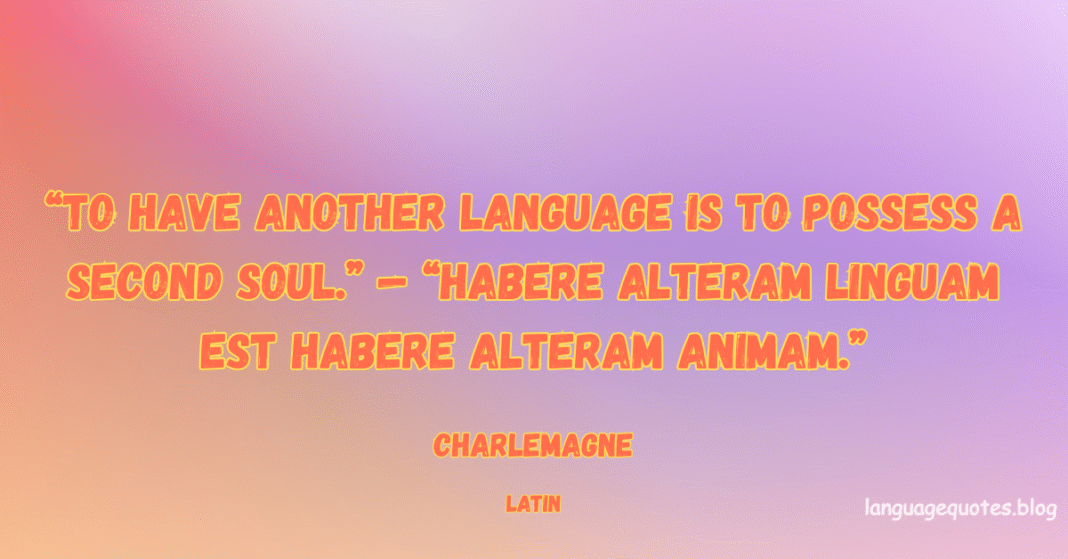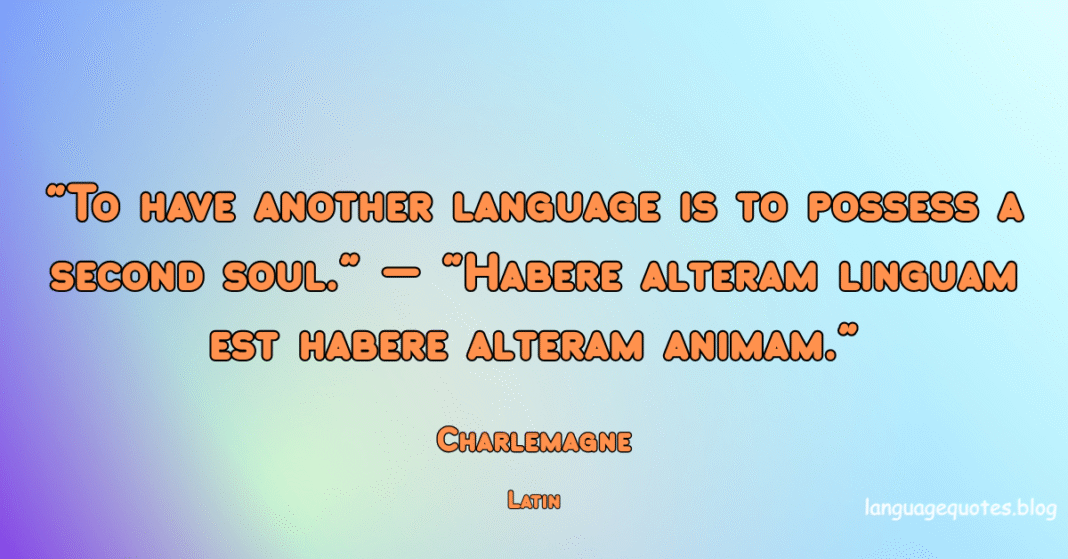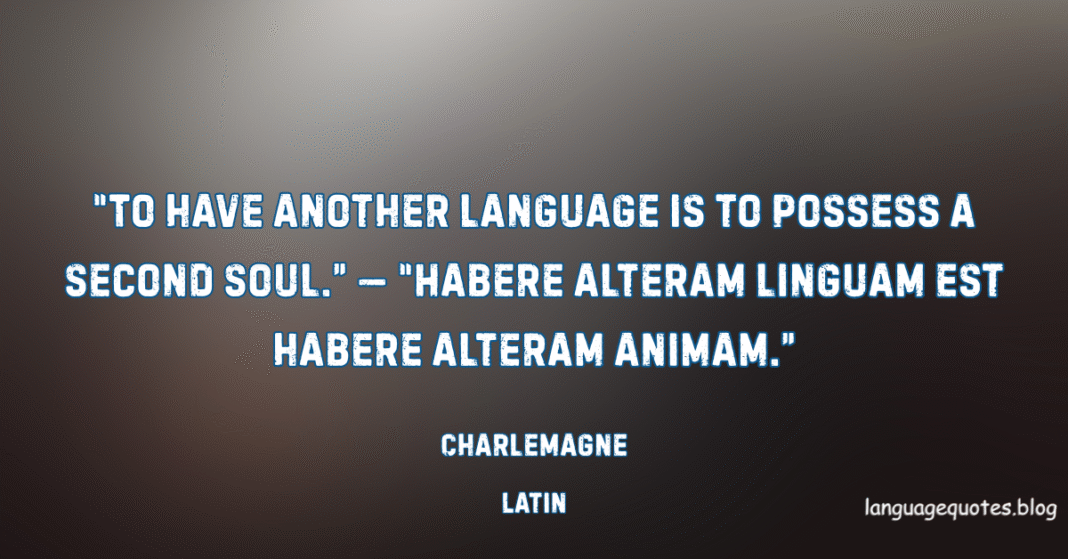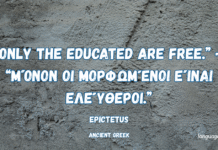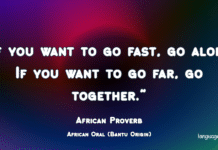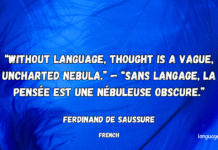“To have another language is to possess a second soul.” — Charlemagne
🗨️ Two-Line Commentary:
Charlemagne’s timeless words celebrate language as more than utility—it is soul-deep transformation. With every new language, we gain new ways to love, laugh, and understand.
🌱 Introduction: A Soul Beyond Words
Few quotes express the emotional, cognitive, and cultural power of language learning as beautifully as Charlemagne’s timeless words:
“To have another language is to possess a second soul.”
This quote, though originating in the early Middle Ages, resonates profoundly in today’s global, interconnected world. It captures a universal truth: when we learn a new language, we don’t just gain vocabulary—we gain perspective, empathy, and a deeper understanding of humanity.
Charlemagne, the King of the Franks and later the Holy Roman Emperor, wasn’t merely concerned with conquest and governance. He understood the cultural and spiritual value of education. And through this quote, he reminds us that language is not just communication—it’s transformation.
🧠 Language and Identity: A Cognitive Shift
Learning a new language fundamentally changes the way we think. Neurologists and cognitive scientists have shown that multilingual individuals exhibit greater cognitive flexibility, improved problem-solving skills, and even delayed onset of neurological diseases like Alzheimer’s.
But Charlemagne’s quote isn’t about brain scans or test scores. He speaks of something deeper: a second soul. That “soul” represents the emotional and cultural expansion that occurs when we think, feel, and live in another language.
Each language carries its own metaphors, idioms, humor, and worldview. When you speak Spanish, Urdu, French, or Japanese, you step into the culture and psychology of its people. Their values, jokes, expressions of love and grief—all come to life through language. You don’t just learn a new way to talk—you learn a new way to be.
🌐 A Cultural Mirror: Language as Human Experience
Charlemagne’s quote beautifully captures how language is tied to the soul of a people. Language isn’t only grammar and vocabulary; it’s the echo of a people’s history, traditions, stories, and wisdom.
For example:
-
In Arabic, poetic structure is deeply embedded in casual conversation.
-
In Japanese, honorifics reflect layers of social structure and respect.
-
In French, elegance in expression is seen as a cultural virtue.
-
In Urdu, one finds unmatched gentleness and romantic lyricism.
When you learn these languages, you inherit more than syntax—you inherit soul. You become part of that cultural current, gaining not just access but also insight.
🔄 Dual Perspective: Living with Two Souls
Being bilingual or multilingual creates a sort of double-vision. You perceive the world in two (or more) ways. This doesn’t cause division—it creates enrichment. For immigrants, travelers, and polyglots, each language becomes a different lens to view life through.
This is what Charlemagne likely meant by a “second soul.” It is the emotional and psychological duality that comes with mastering another language. With that mastery, you gain new emotional registers, new types of humor, even new parts of your own identity.
You might find you’re more polite in one language, more direct in another, or that you cry more easily in the one you learned from your grandmother. These variations reflect not inconsistency but the expansion of emotional and expressive capacity.
📖 Education and Empathy: Language as Bridge
Charlemagne strongly promoted education during his reign and saw language as central to civilizing and unifying diverse populations. This quote is a testament to the belief that language brings people closer—not just intellectually, but spiritually.
In today’s world, where xenophobia and cultural clashes are unfortunately common, this quote reminds us that learning another language builds bridges instead of walls. It fosters empathy, combats prejudice, and allows for deeper understanding.
You can never fully hate a culture whose language you speak—because speaking that language gives you access to shared humanity.
🖋️ About the Author: Charlemagne’s Vision
Charlemagne (742–814), also known as Charles the Great, was a pivotal figure in European history. Though remembered as a warrior king, he also revived education, preserved classical knowledge, and promoted literacy. His court became a beacon of learning during what was otherwise a dark period in European intellectual history.
This quote exemplifies his forward-thinking belief in the value of communication, diversity, and education. It reveals that the idea of language as soul has existed far longer than modern linguistics—it is an ancient truth of the human condition.
🔚 Conclusion: A Soul Multiplied by Language
“To have another language is to possess a second soul.” It’s a poetic reminder that learning a language does not just alter your resume—it alters your reality. It stretches your identity, expands your emotional range, and opens your heart to others.
You may never live a second life—but through language, you can live a second soul. And with each new language, a new part of yourself awakens.
So the next time you learn a new phrase or immerse yourself in a foreign script, remember: you’re not just learning words. You’re growing another part of your soul.


